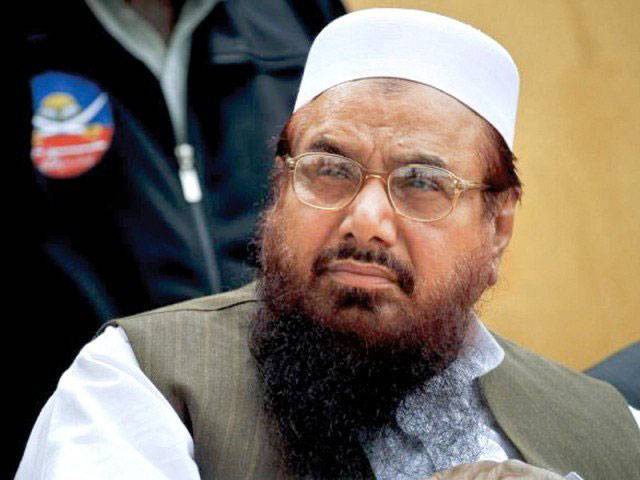ISLAMABAD - Pakistan will not allow the United Nations Security Council’s sanctions monitoring committee any direct access to Jamaatud Dawa chief Hafiz Muhammad Saeed or his entities this week, diplomatic sources said.
Senior officials at the foreign ministry told The Nation that the UNSC team’s visit was not designed to ‘press Pakistan’.
The UNSC team, one official said, will visit Pakistan to discuss ‘official information’ on issues relating to the banned outfits and implementation of the UN sanctions. “They will not seek access to the JuD or Hafiz Saeed and if they do that, we will not allow it. We have been in talks and this visit was scheduled,” he said.
Another official said the team will hold meetings with Pakistani officials on the list of the sanctioned outfits. “We have been implementing the UN sanctions, so there is no panic. We are ready to answer their questions. We have been preparing,” he said.
The two-day visit by the UNSC team starts on January 26. The UNSC sanctions list includes the names of JuD, Al-Qaeda, Tehreek-e-Taliban Pakistan, Lashkar-e-Jhangvi, Falah-e-Insaniyat Foundation, Lashkar-e-Taiba and other organisations and individuals.
The UNSC monitoring committee oversees the sanctions measures imposed by the Security Council under the rules. The member countries are required to freeze without delay the funds and other financial assets or economic resources of designated individuals and entities.
The members are also required to prevent the entry into or transit through their territories by designated individuals. “All states are required to prevent the direct or indirect supply, sale and transfer from their territories or by their nationals outside their territories, or using their flag vessels or aircraft, of arms and related material of all types, spare parts, and technical advice, assistance, or training related to military activities, to designated individuals and entities,” under the UN rules.
The committee, according to the UN website is mandated to “oversee the implementation of the sanctions measures, designate individuals and entities who meet the listing criteria set out in the relevant resolutions, consider and decide upon notifications and requests for exemptions from the sanctions measures, consider and decide upon requests to remove a name from the Daesh and Al-Qaeda sanctions list, conduct periodic and specialised reviews of the entries on the Daesh and Al-Qaeda sanctions list, examine the reports presented by the monitoring team, report annually to the Security Council on the implementation of the sanction measures and conduct outreach activities.” The committee was initially established in pursuant to resolution 1267 (1999), which imposed a limited air embargo and assets freeze on the Taliban.
Last week, Pakistan banned companies and individuals from making donations to the JuD, the FIF and other organizations on the UNSC sanctions list. The Securities and Exchange Commission of Pakistan said that all companies had been prohibited from “donating cash to the entities and individuals listed under the United Nations Security Council sanctions committee’s consolidated list.”
The UNSC team’s visit comes after the United States pressed Pakistan to prosecute the JuD chief “to the fullest extent of the law” as Washington regards him a “terrorist.”
Hafiz Saeed has been blamed for masterminding attacks in Held Kashmir and the 2008 Mumbai carnage that killed 166 people. The JuD chief denies the allegations saying he was only engaged in charity works. The White House has already warned that there would be repercussions unless Islamabad takes action to detain and charge Saeed.
The JuD chief was released on the order of the Lahore High Court last year. The court rejected the government’s request seeking a further extension in his house arrest as there was not “sufficient evidence” to keep him under custody.
The United States Department of the Treasury designated Saeed as a specially designated global terrorist in May 2008. The JuD chief was also individually designated a terrorist by the United Nations under UNSC R1267 in December 2008 following the November 2008 Mumbai attack in which six American citizens were killed.
Pakistan has already told the US that it cannot act against Saeed as there was no evidence against him. Earlier, Prime Minister Shahid Khaqan Abbasi said that there were no charges against Saeed. The premier said that the US and India were free to charge Saeed internationally if there was substance to the accusations against him.






